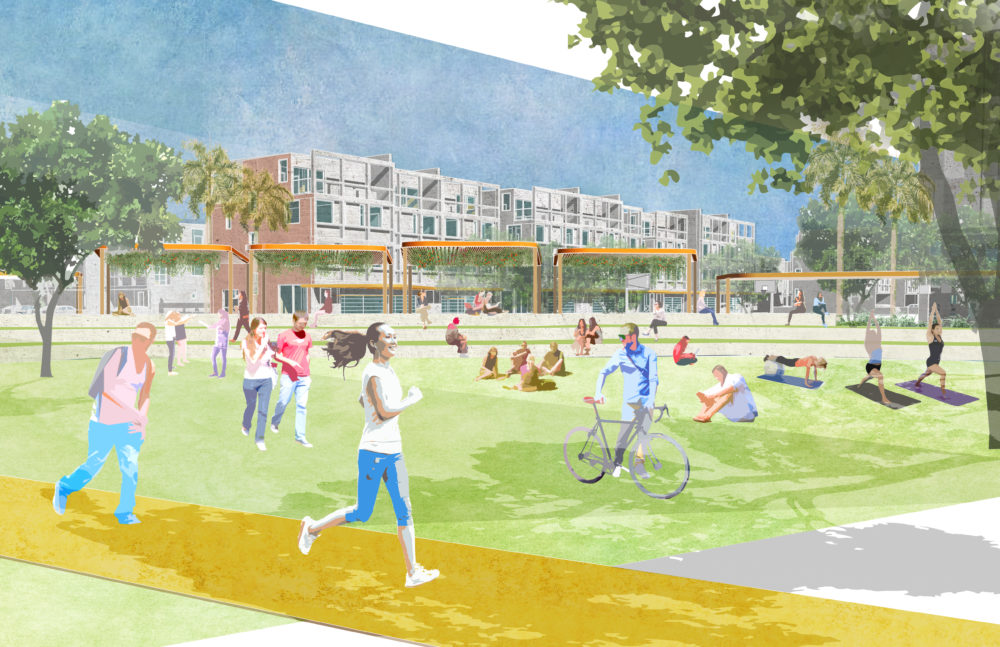
Sevina Park
Binan, Laguna, Philippines
 Sasaki
Sasaki
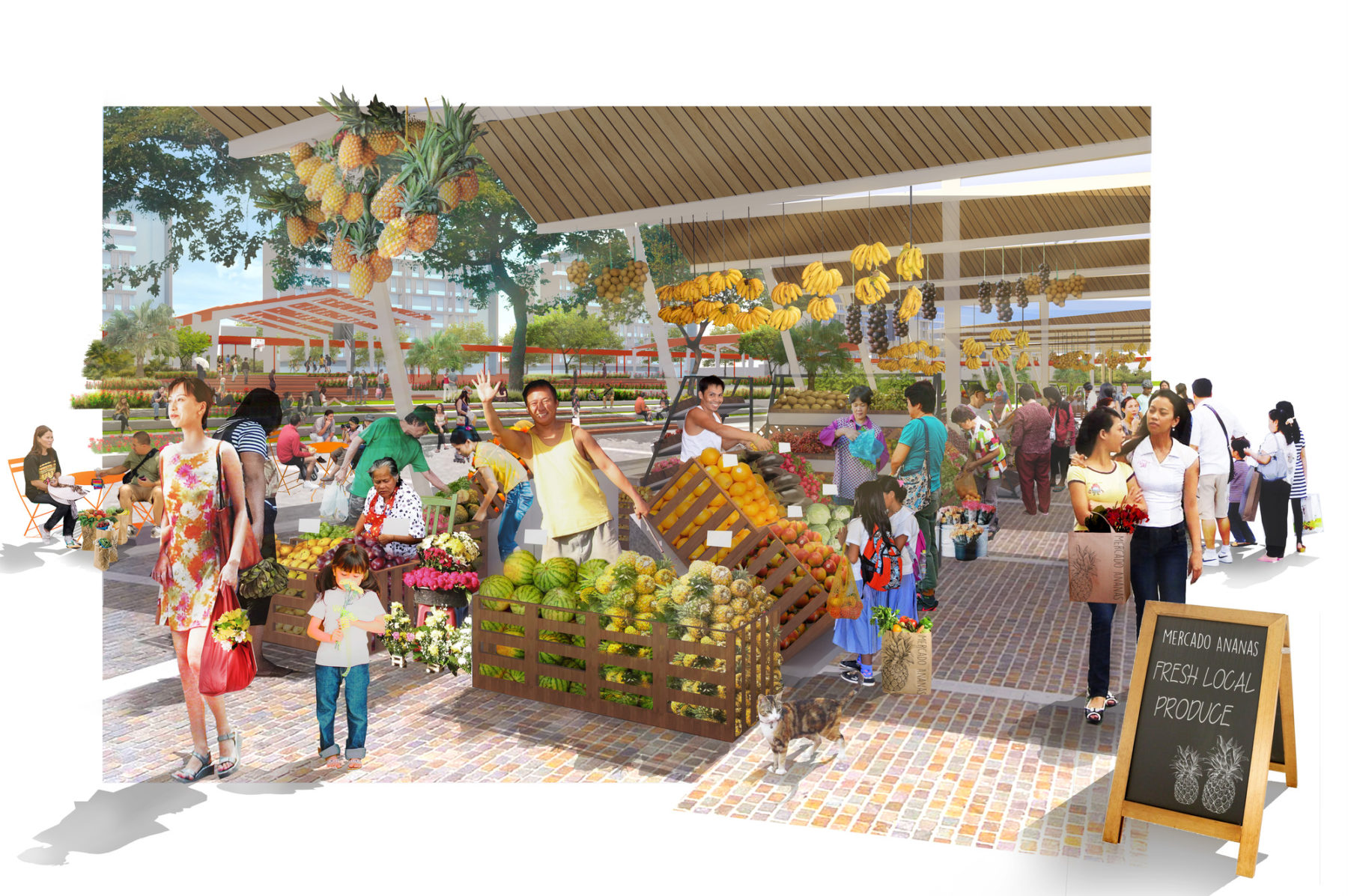
A public market in the central park allows farmers to sell and showcase local produce. Produce sold on site and used in local restaurants is locally grown and harvested, preserving the lifeline of local farmers and their families.
Ananas represents a bold approach to urban development that celebrates the agricultural, social, and ecological heritage of the Philippines. This new vision cultivates—within the context of an evolving urban district—an ecosystem that actively supports a more sustainable regional food network. By preserving the local region’s role and identity as Manila’s Food Basket, and drawing from the essential elements of Filipino culture, Ananas represents a wholly new paradigm of urban living.
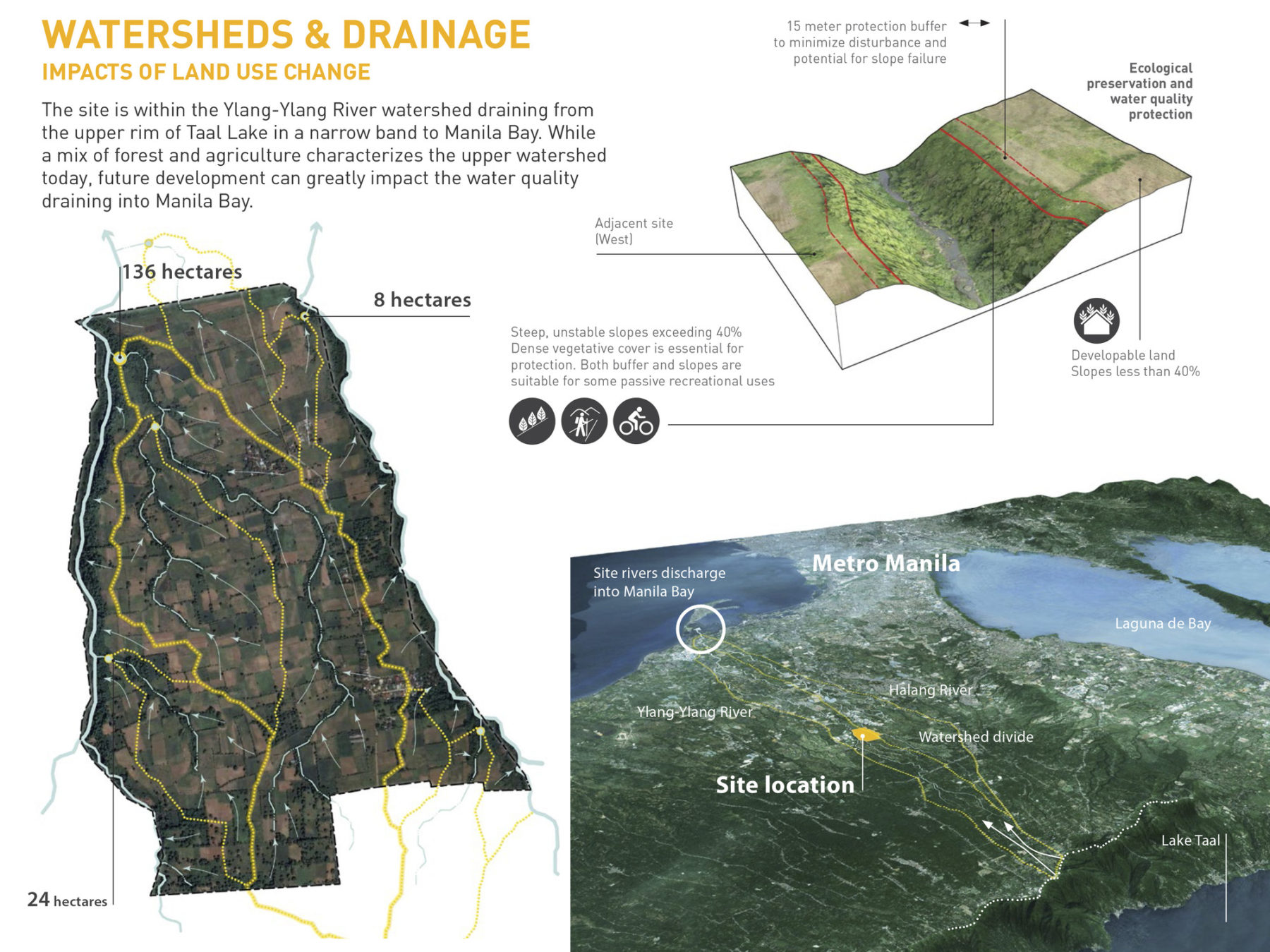
The site is within the Ylang-Ylang River watershed draining from the upper rim of Taal Lake in a narrow band to Manila Bay. While a mix of forest and agriculture characterizes the upper watershed today, future development can greatly impact the water quality draining into Manila Bay
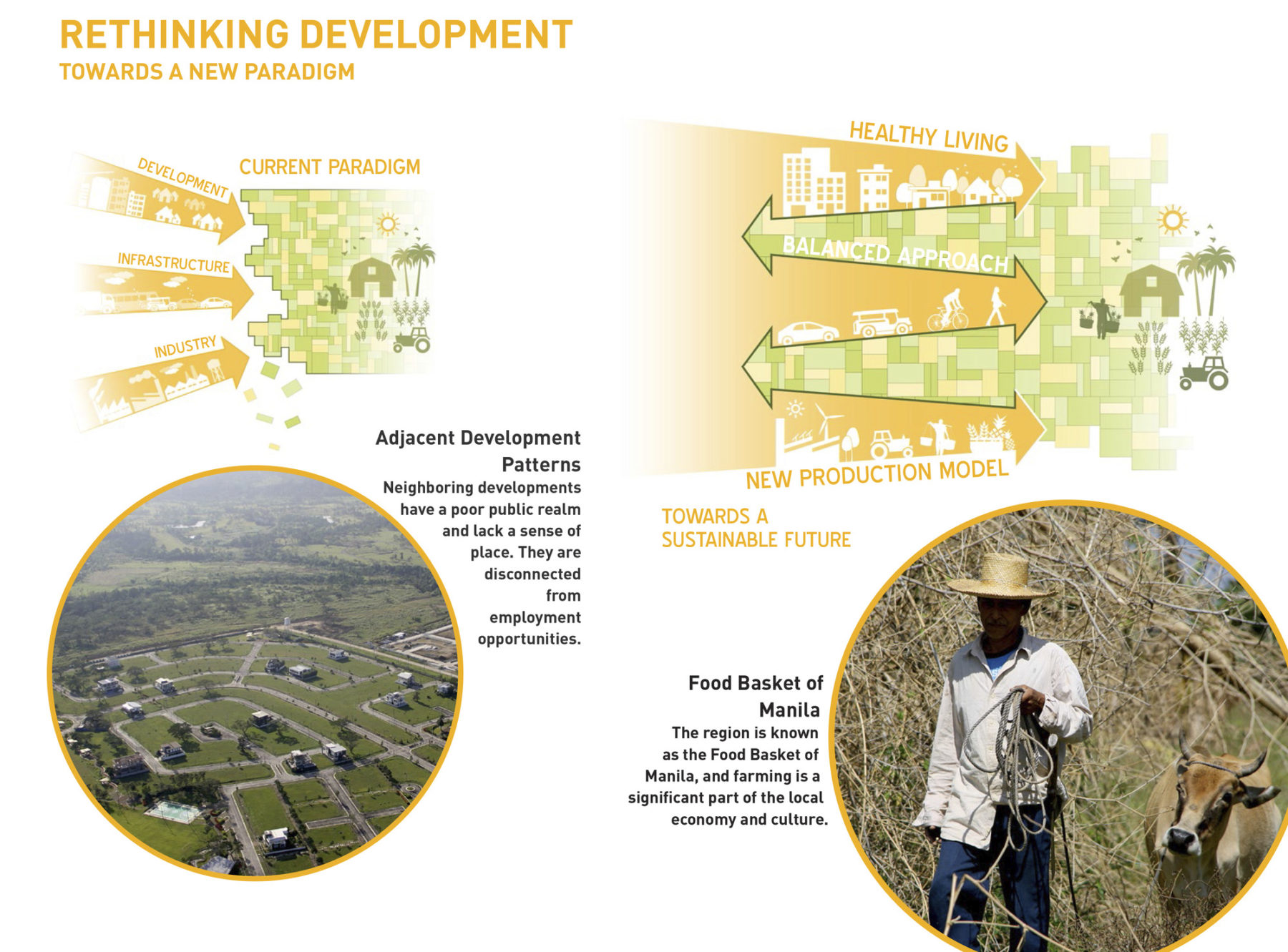
Neighboring developments have a poor public realm and lack a sense of place. They are disconnected from employment opportunities. Alternatively, Ananas seeks to reconfigure traditional relationships between farmland and urban development.
The plan seeks to reconfigure traditional relationships between farmland and urban development. A series of Pollinator Paths, linear community gardens with a range of plot types, are distributed within the plan so that every resident has access to an agricultural plot in less than a two-minute walk. This novel form of urban agriculture allows existing farmers to continue working the land while mentoring newer residents in local farming practices. Related community and agricultural programs, such as restaurants, markets, and a culinary school, are located immediately adjacent to the Pollinator Paths, creating further opportunities for economic development and innovation.
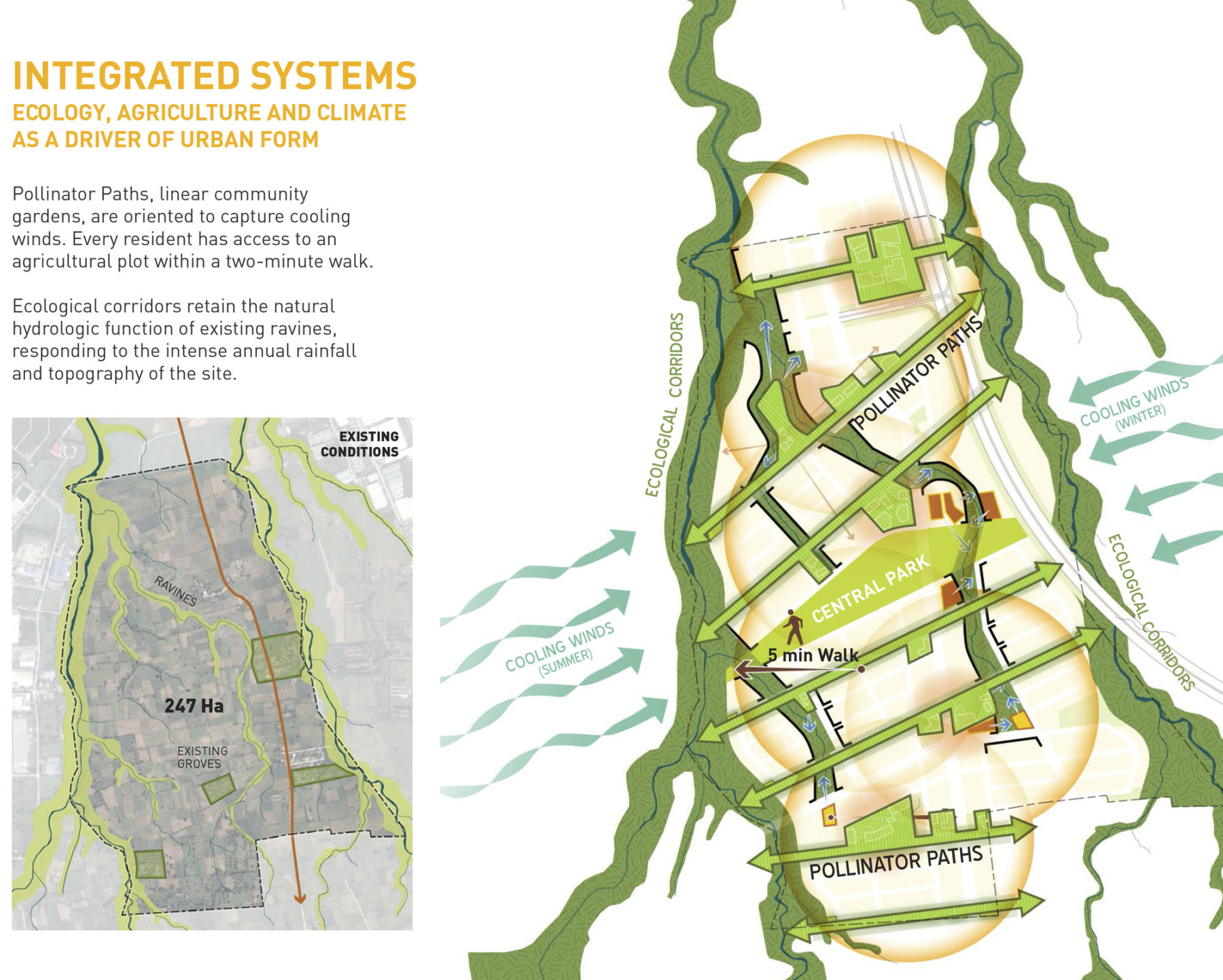
Integrated framework. The plan celebrates the agricultural, social, and ecological heritage of the site. It draws from essential elements of Filipino culture to cultivate — within the context of an evolving urban district — an ecosystem that actively supports a more sustainable regional food network.
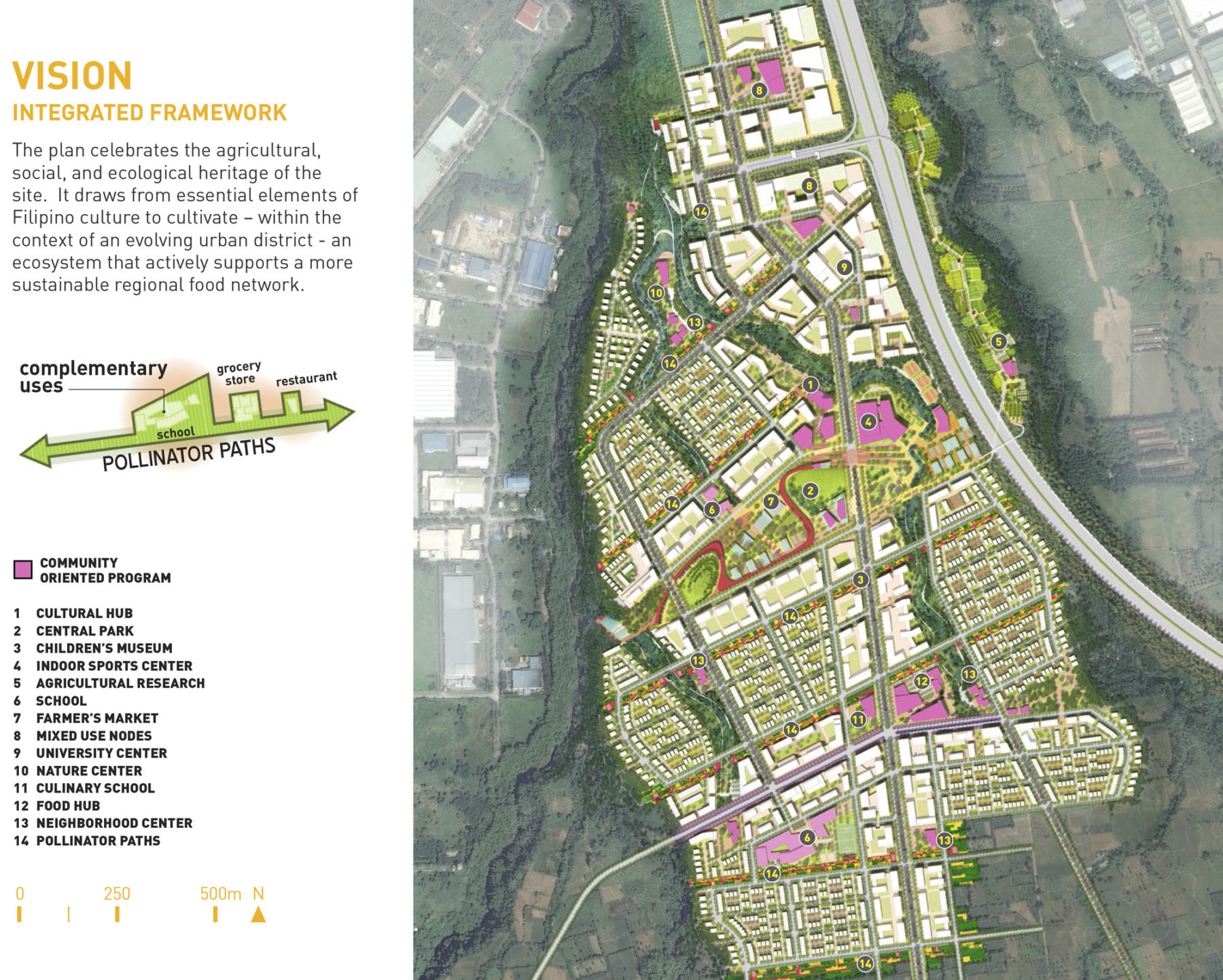
A series of Pollinator Paths, linear community gardens with a range of plot types, are distributed within the plan so that every resident has access to an agricultural plot in less than a two-minute walk
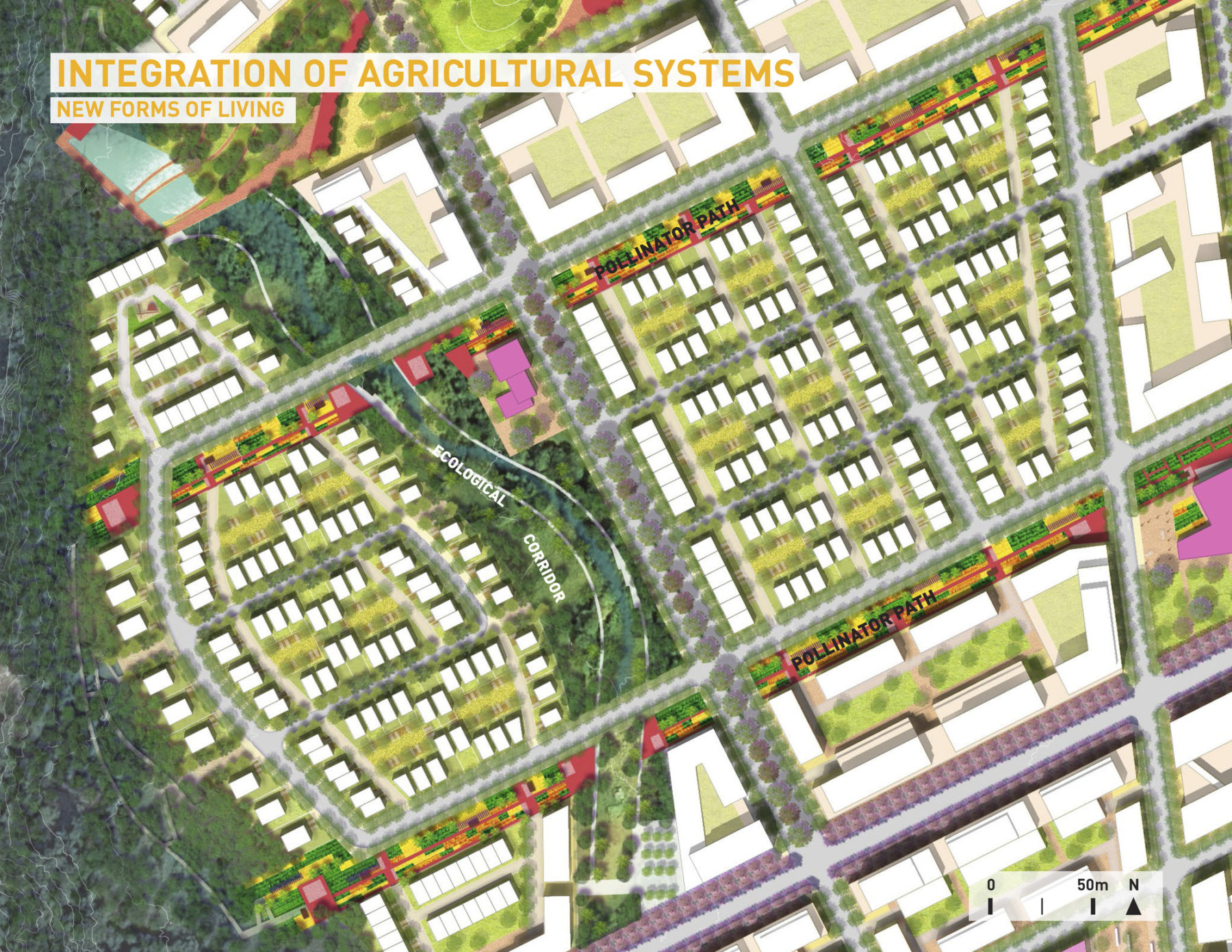
A map of how pollinator paths connect different parts of the site
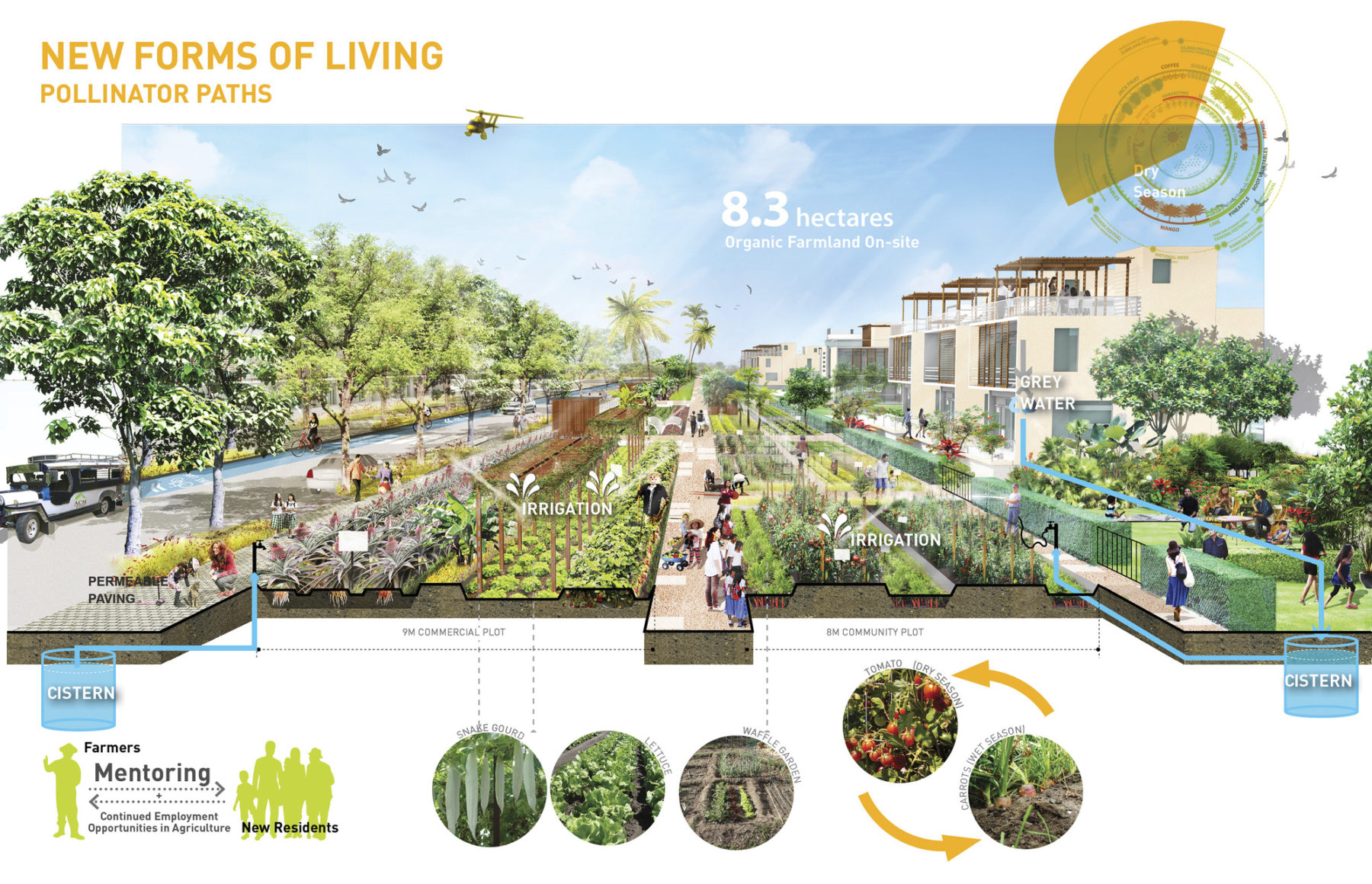
The pollinator paths support the agricultural production and are integrated to housing, commercial, and cultural uses
In-depth research of the local environment and ecology was used to support a comfortable microclimate at the neighborhood and building scales. A verdant, connected, and functional landscape network of agricultural plots, eco-corridors, and parks ensure the recharge of the region’s aquifer, while promoting walking and biking. Plazas, sidewalks and trails tie the natural landscape with civic, cultural and entertainment spaces allowing the community to connect with nature and with each other.
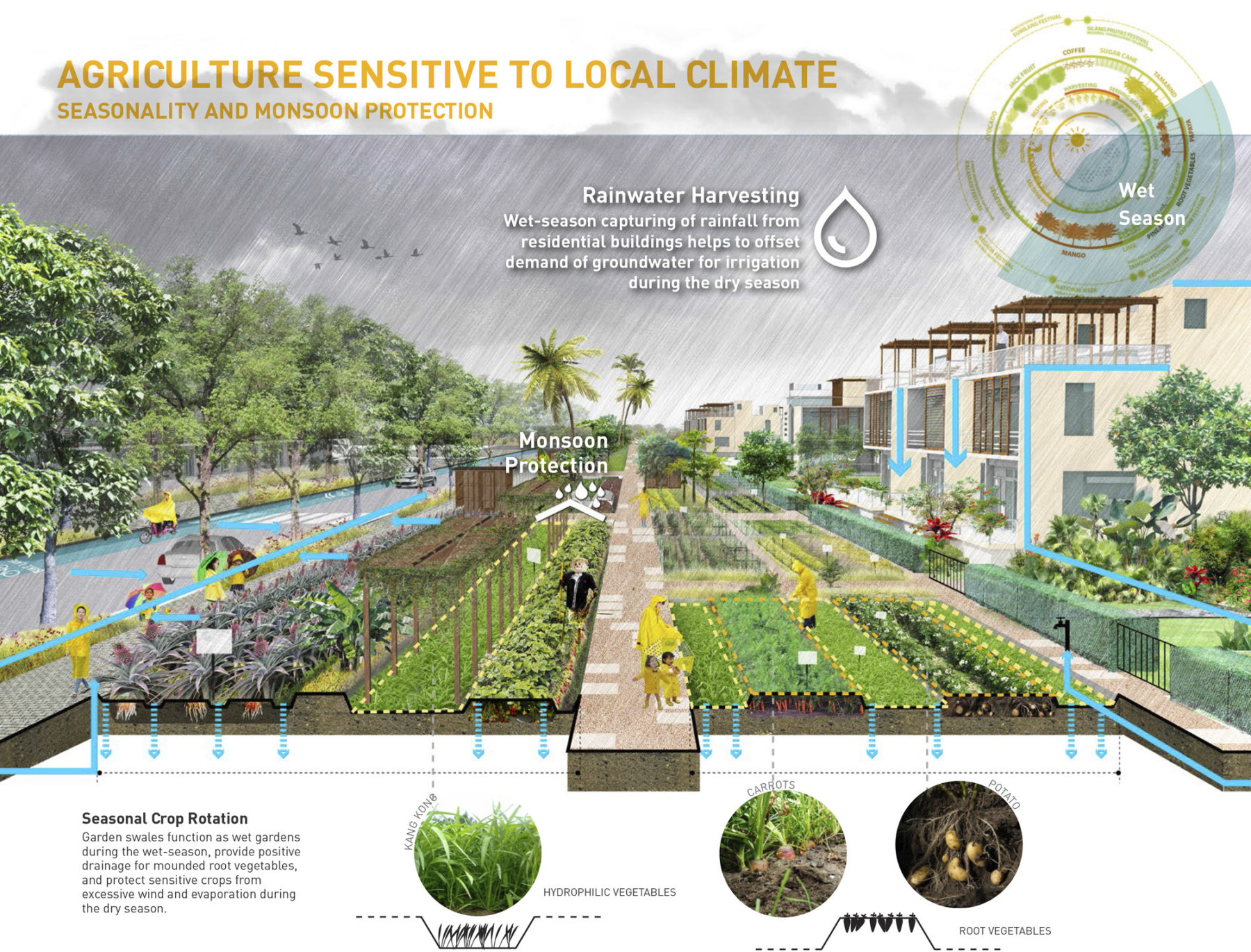
Garden swales function as wet gardens during the wet season, provide positive drainage for mounded root vegetables, and protect sensitive crops from excessive wind and evaporation during the dry season
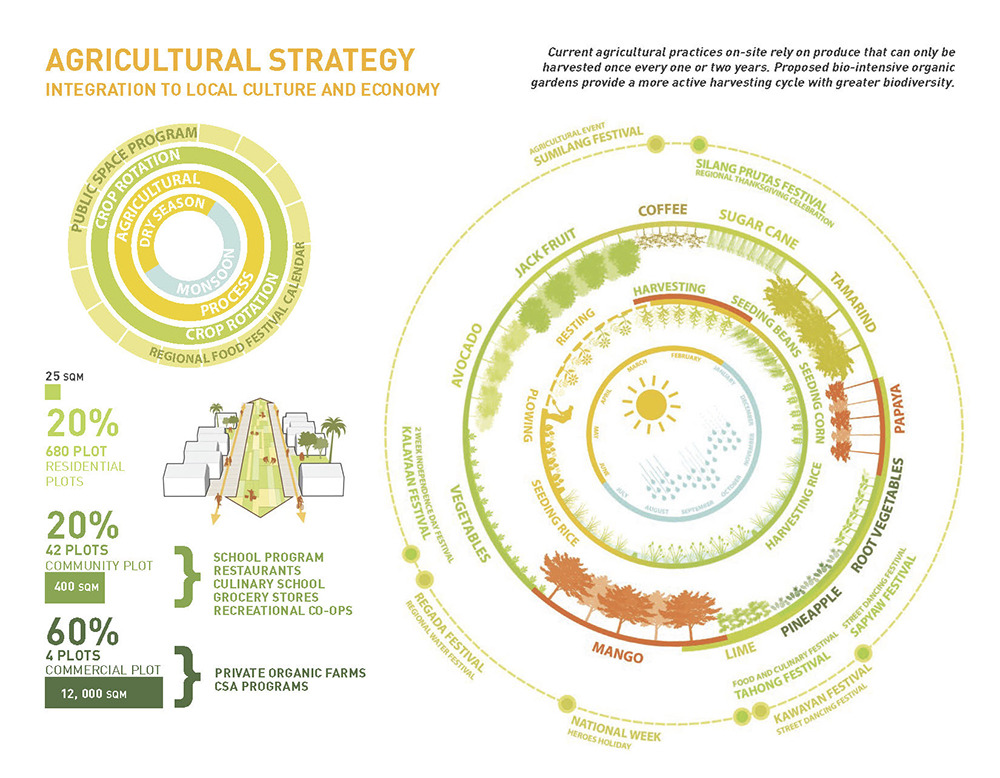
Current agricultural practices on site rely on produce that can only be harvested once every two years. Proposed organic biointensive gardens provide a more active harvest cycle and greater biodiversity, and are tied to the region’s cultural calendar.
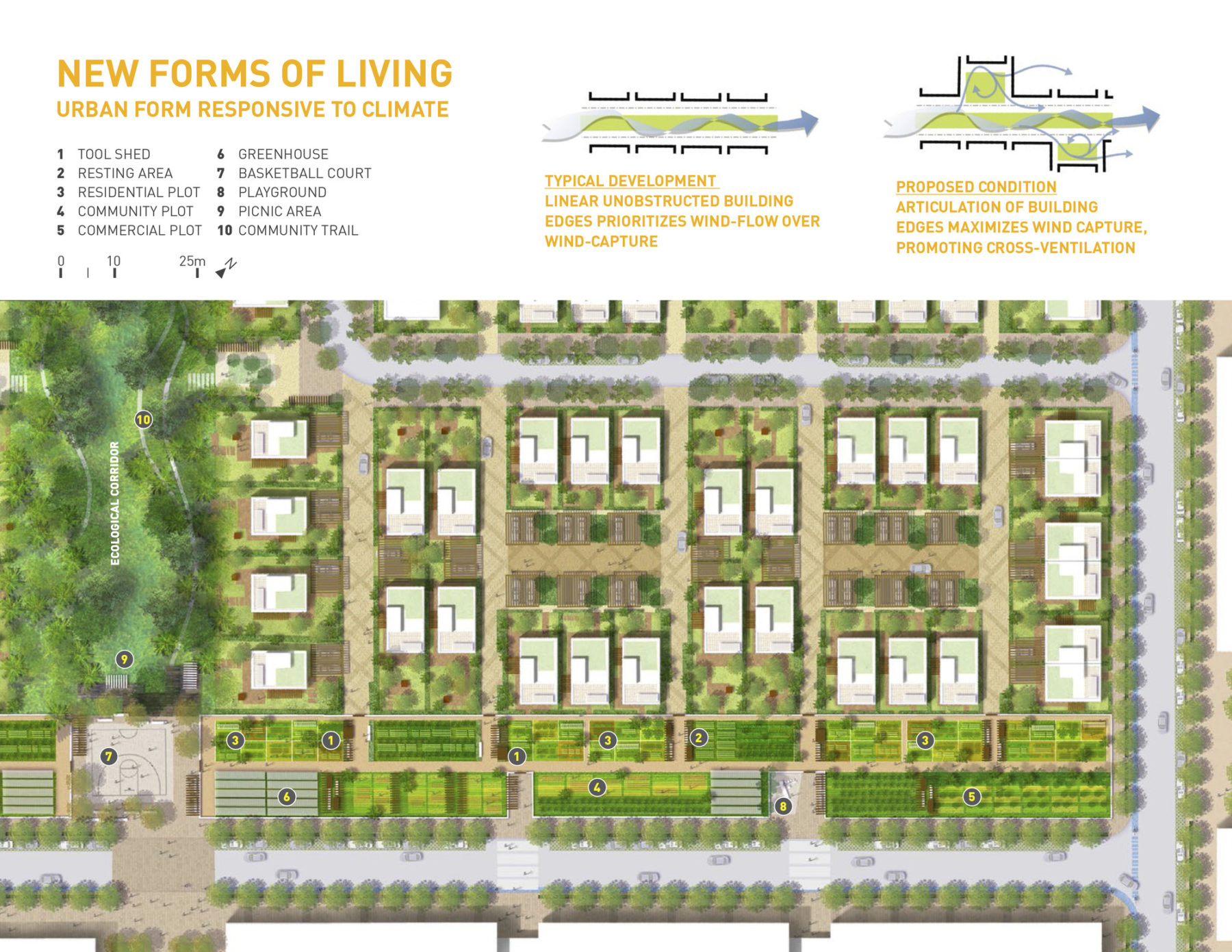
Building designs and layout maximize wind capture and promote cross ventilation
A mix of residential, civic, education, retail, and service uses underpin a holistic community. The integration of employment opportunities with diverse residential offerings will foster a new model of development that is less car-dependent and more sustainable. Ananas responds to Filipino’s aspirations of living in a place that will make a positive impact on their environment and lives.
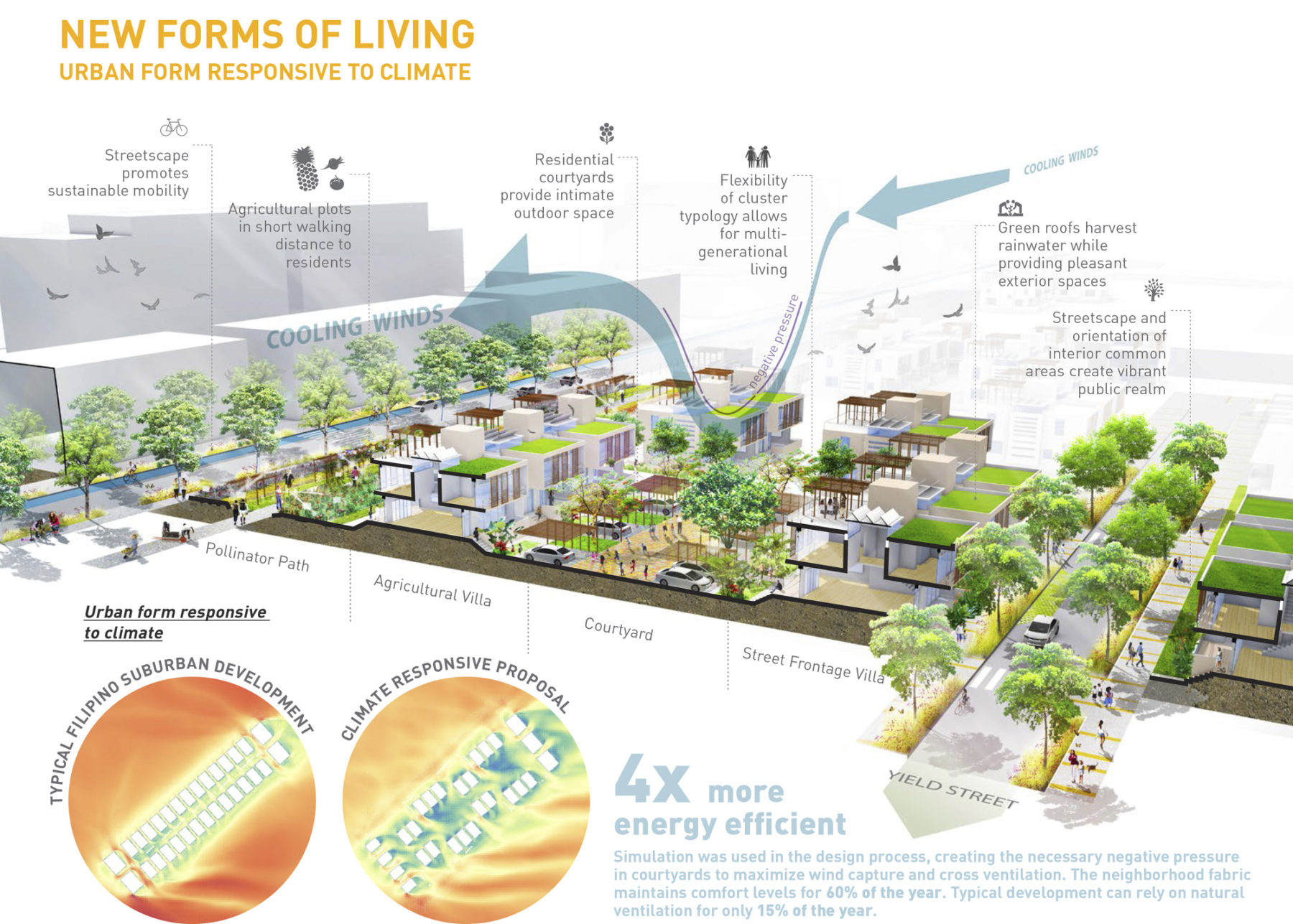
The proposal is more energy efficient than typical suburban development
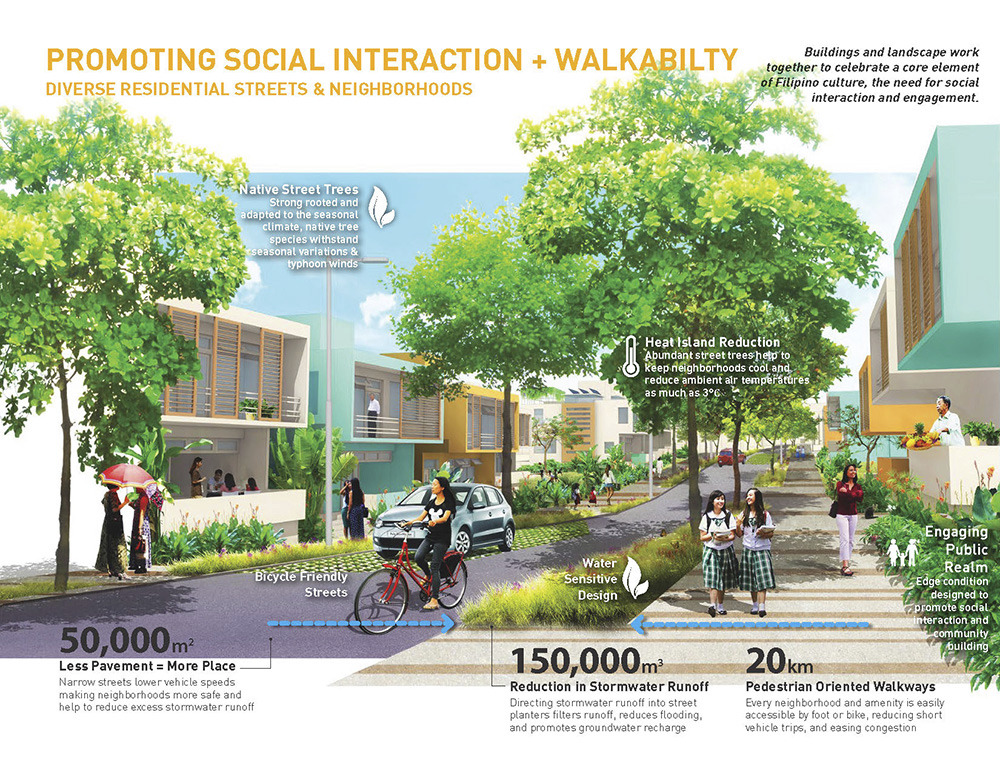
Buildings and landscape work together to celebrate a core element of Filipino culture: the need for social interaction and engagement
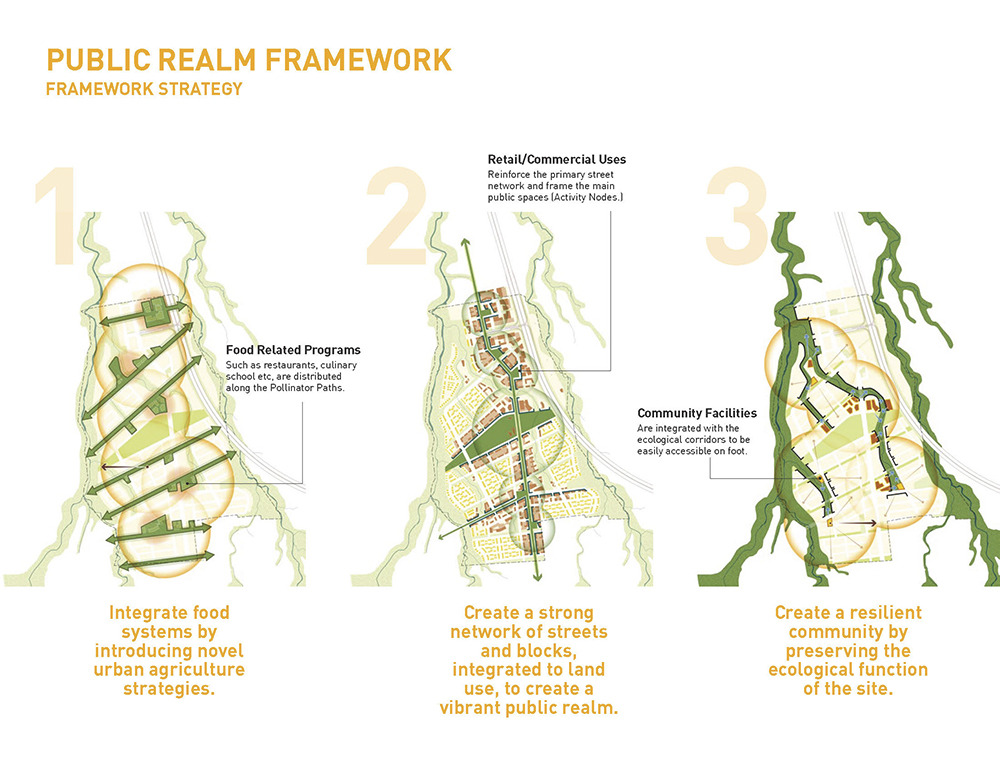
The framework strategy integrates food systems with public retail space and community facilities that preserve the ecological function of the site
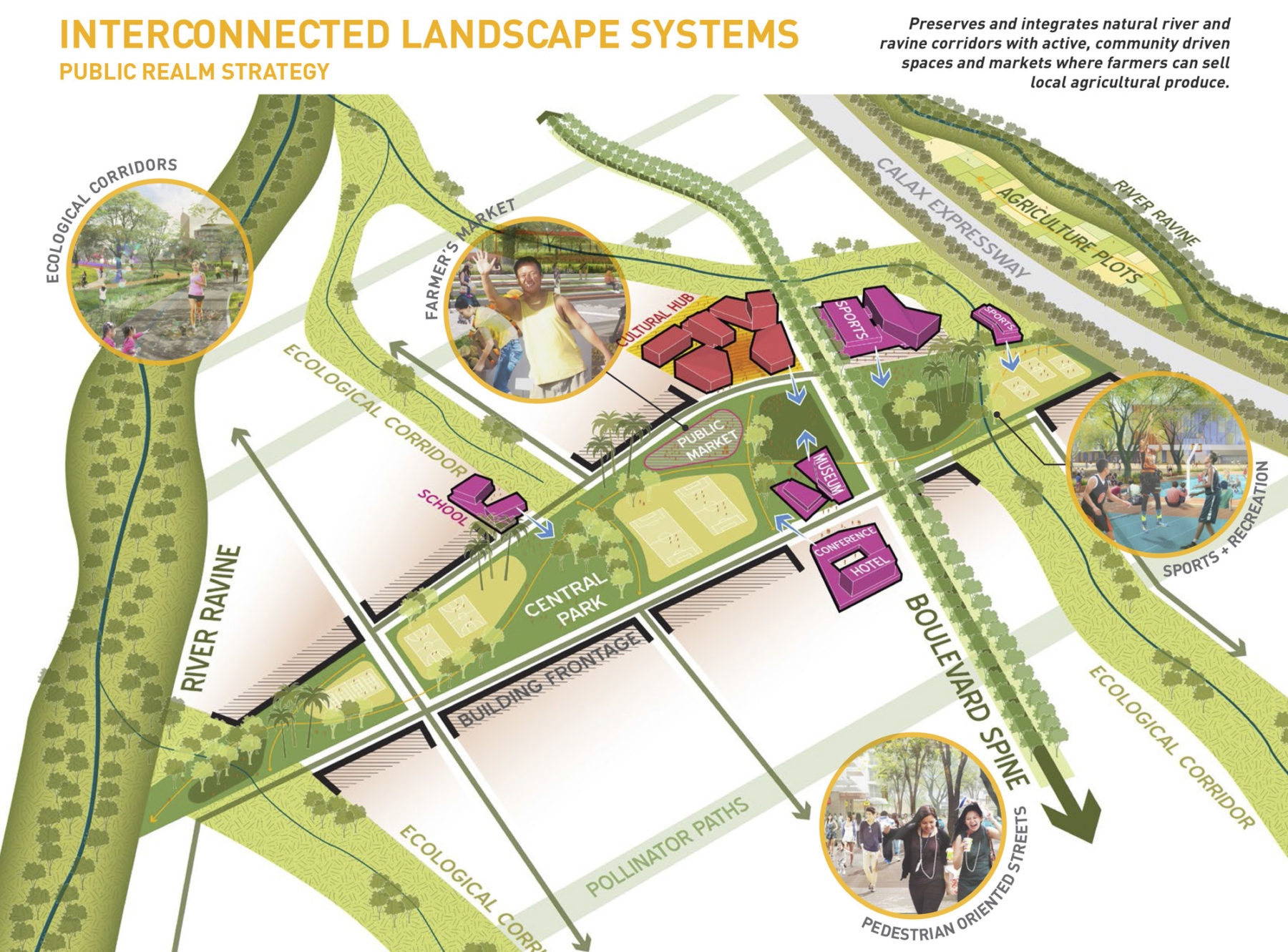
Interconnected landscape systems. A central park preserves and integrates natural river and ravine corridors with active, community – driven spaces and markets where farmers can sell local agricultural produce
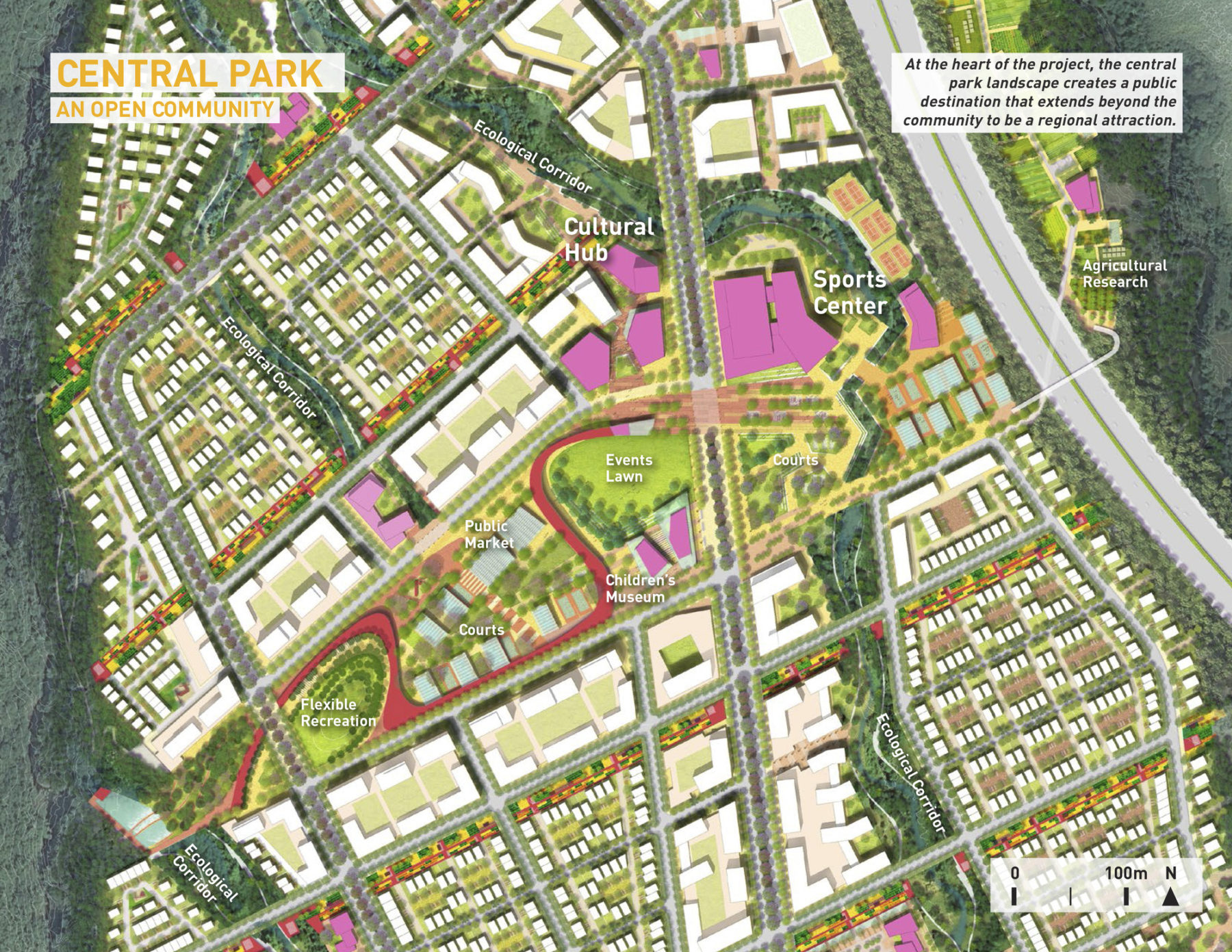
At the heart of the project, the central park landscape creates a public destination that extends beyond the community to be a regional attraction
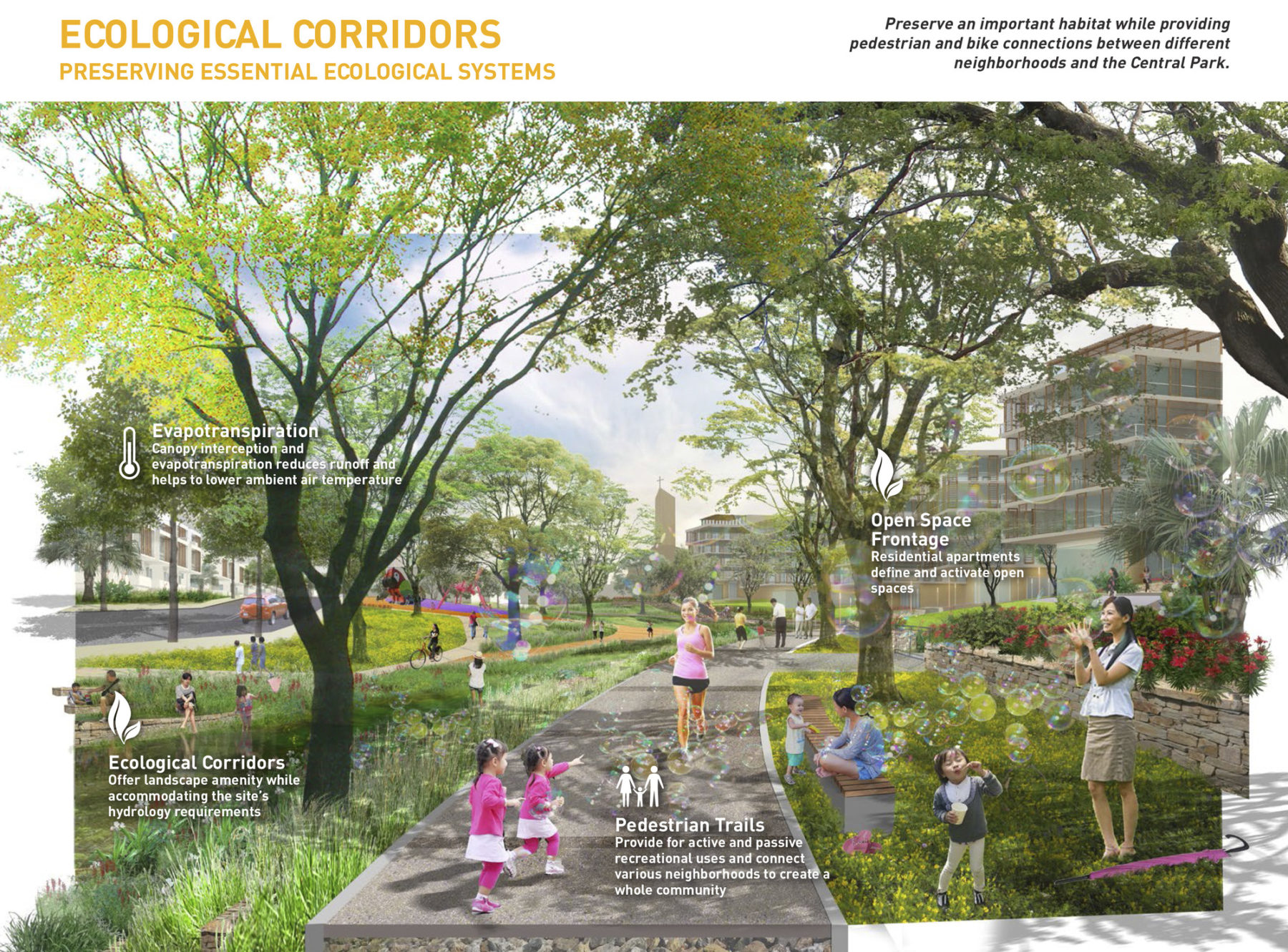
Pedestrian and bike paths will connect different neighborhoods and the central park
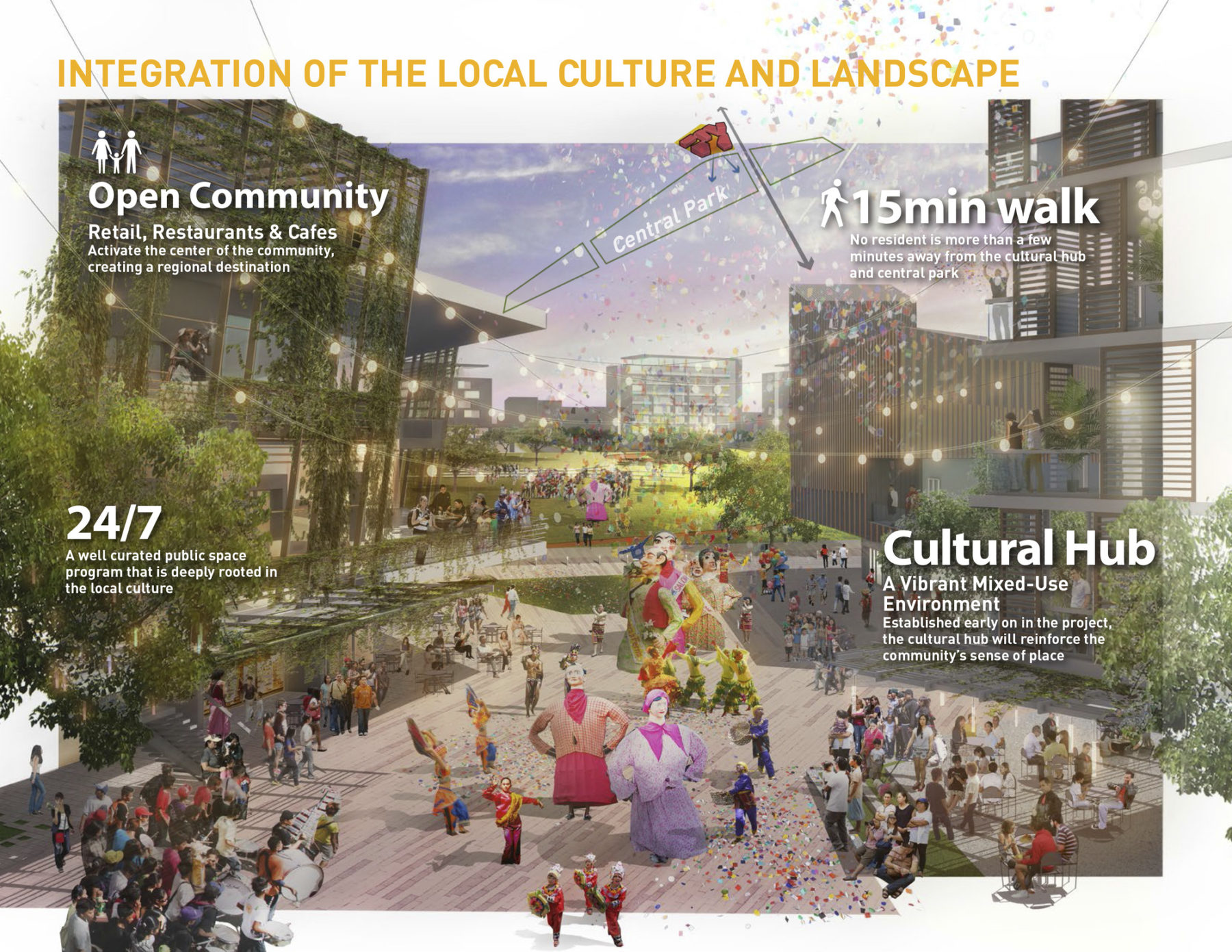
The cultural hub will become the social crossroads at Ananas, creating a forum for community activities
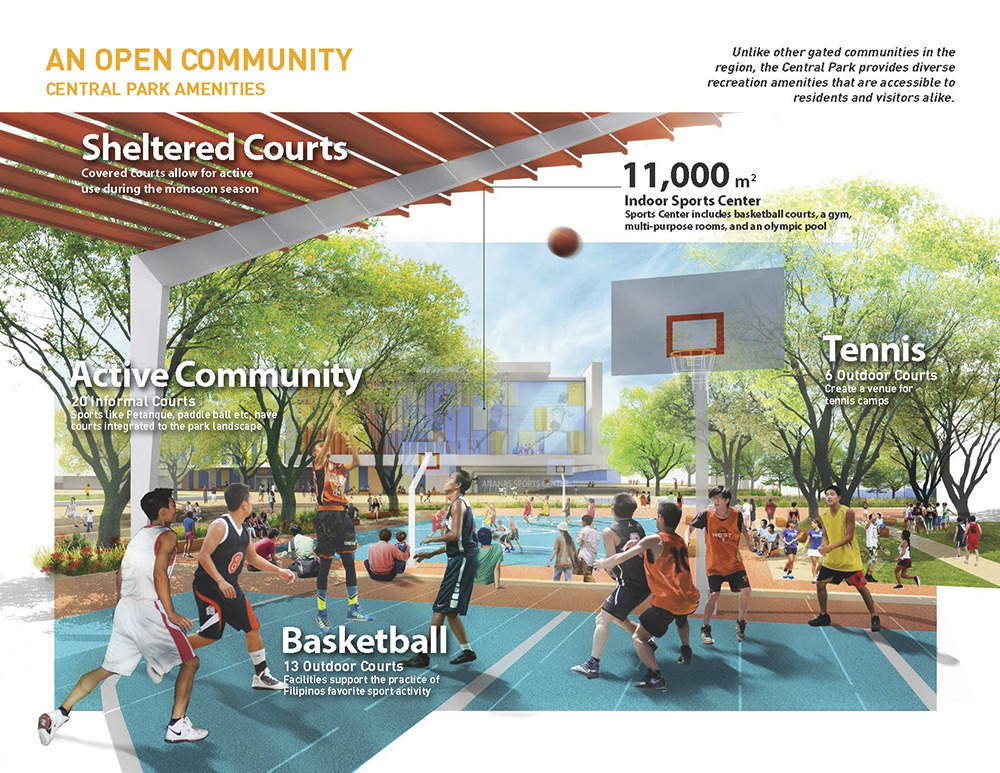
Sports and recreation facilities located in the central park will be open to neighboring communities and will promote social integration
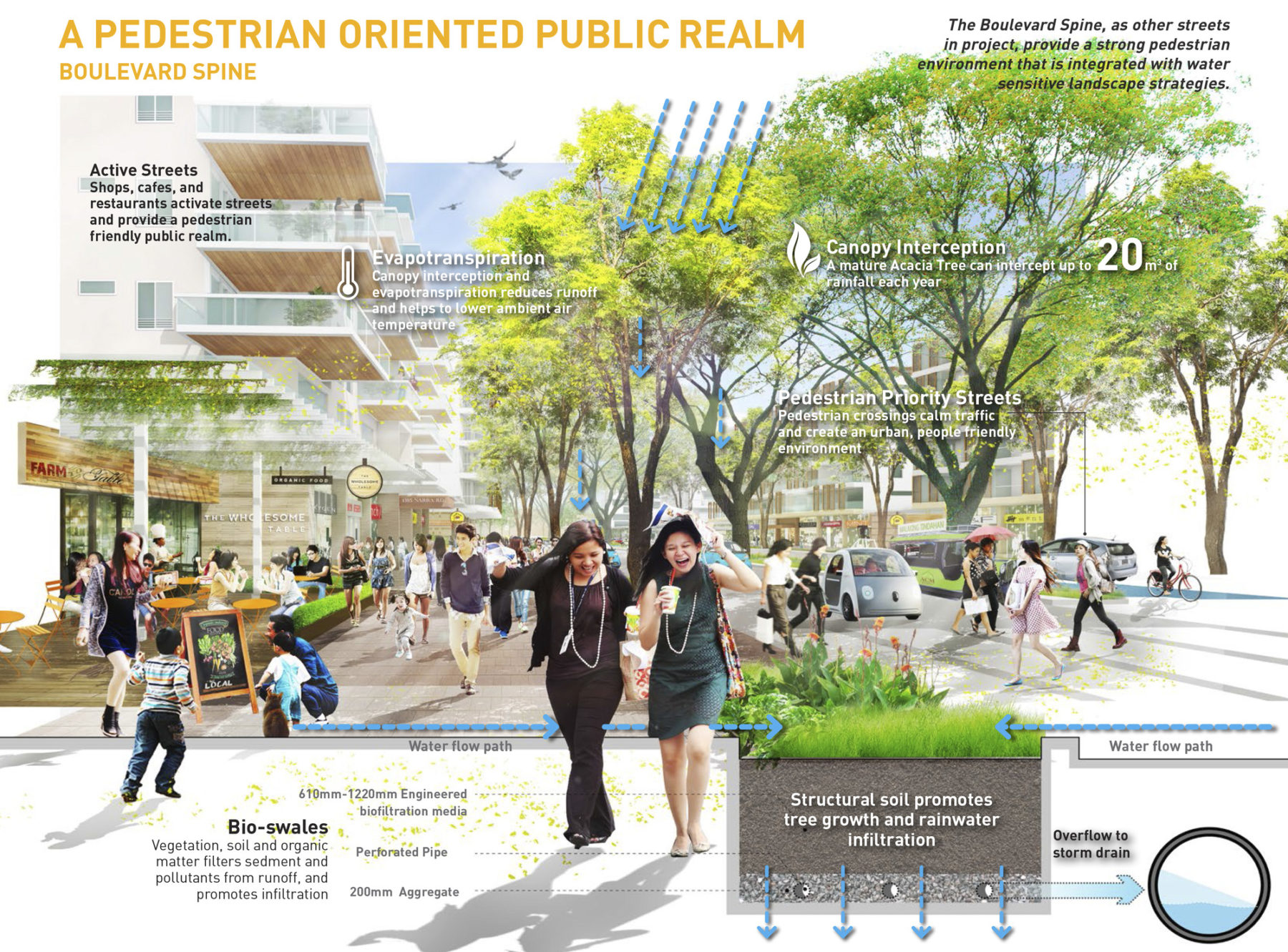
The boulevard spine, as other streets in project, provides a strong pedestrian environment that is integrated with water-sensitive landscape strategies
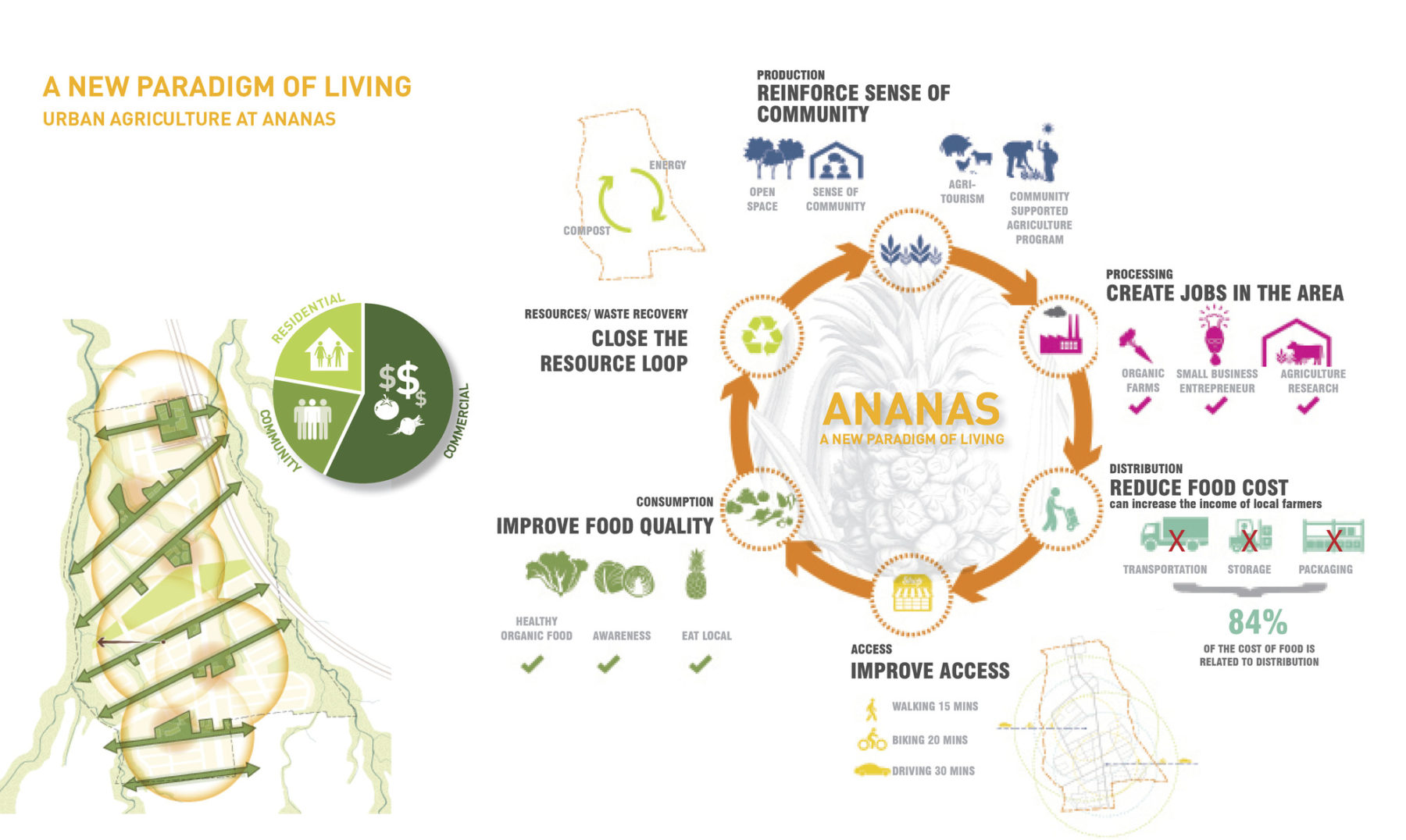
Urban agriculture will drive a new loop of food quality, access, economic efficiency, and sense of community
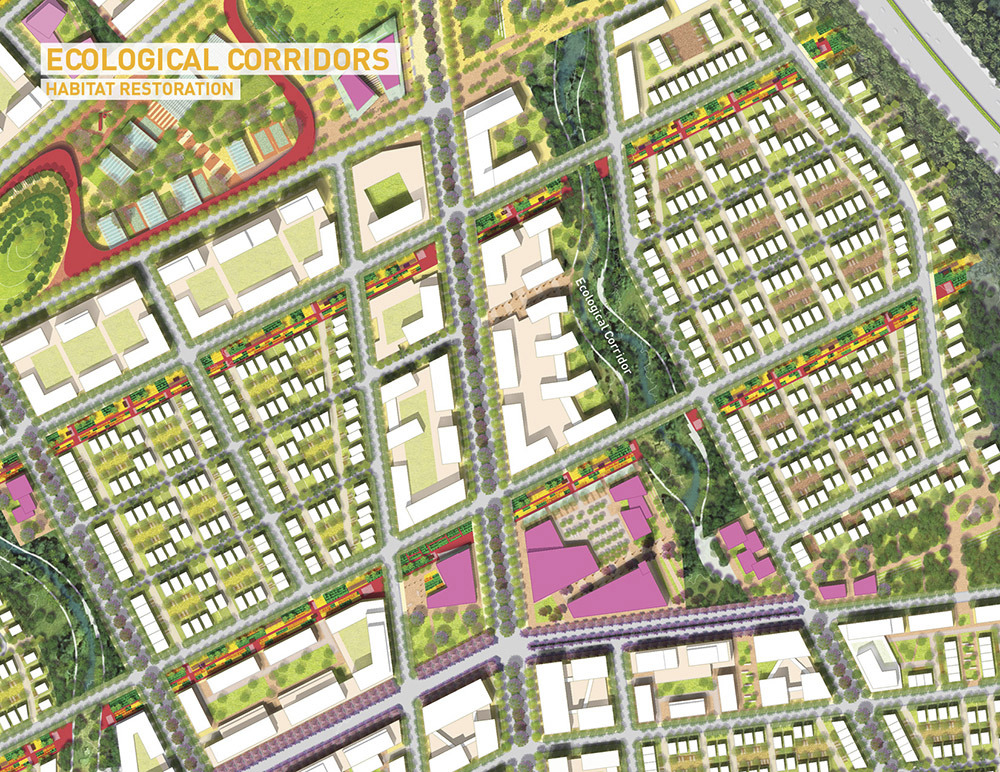
Ananas New Community will include a connected cultural hub, sports center, agricultural research, ecological corridors, and more
For more information contact Dennis Pieprz.